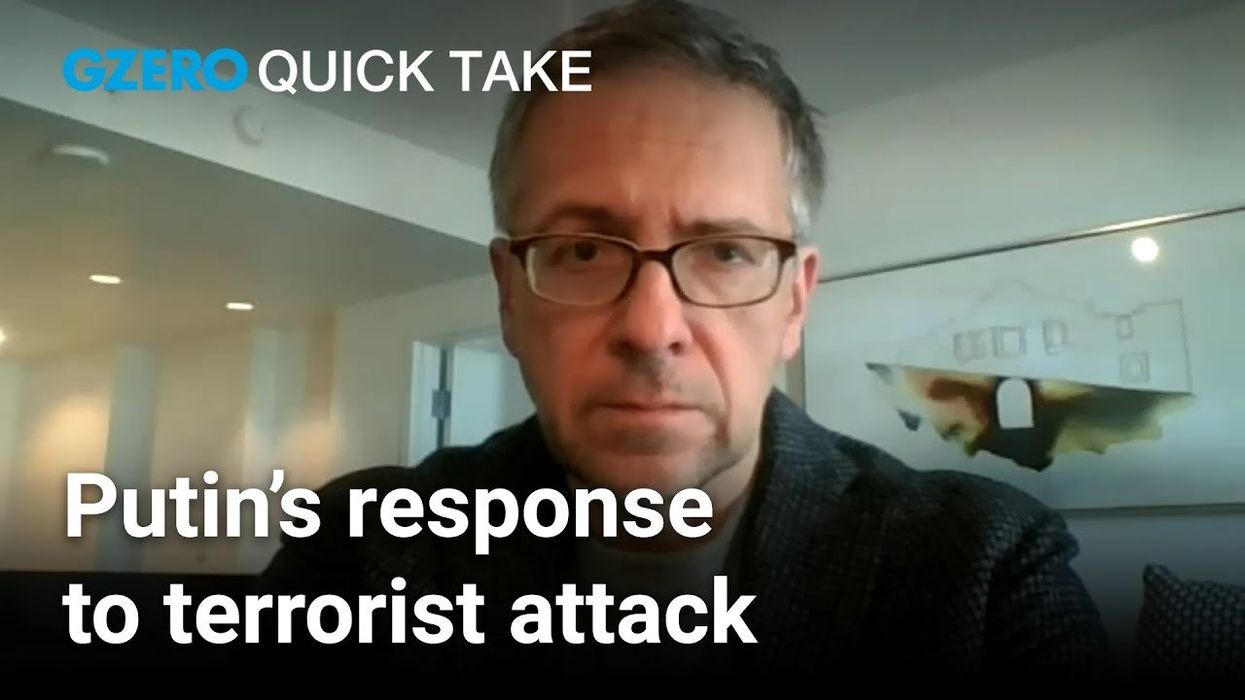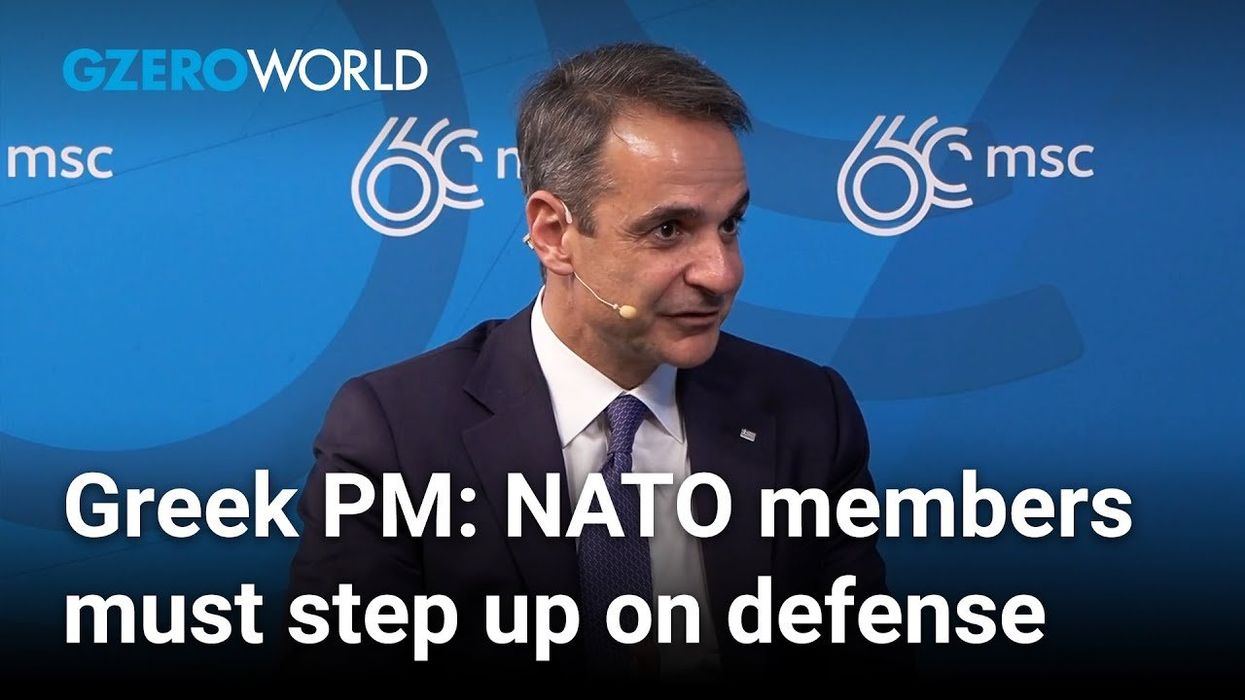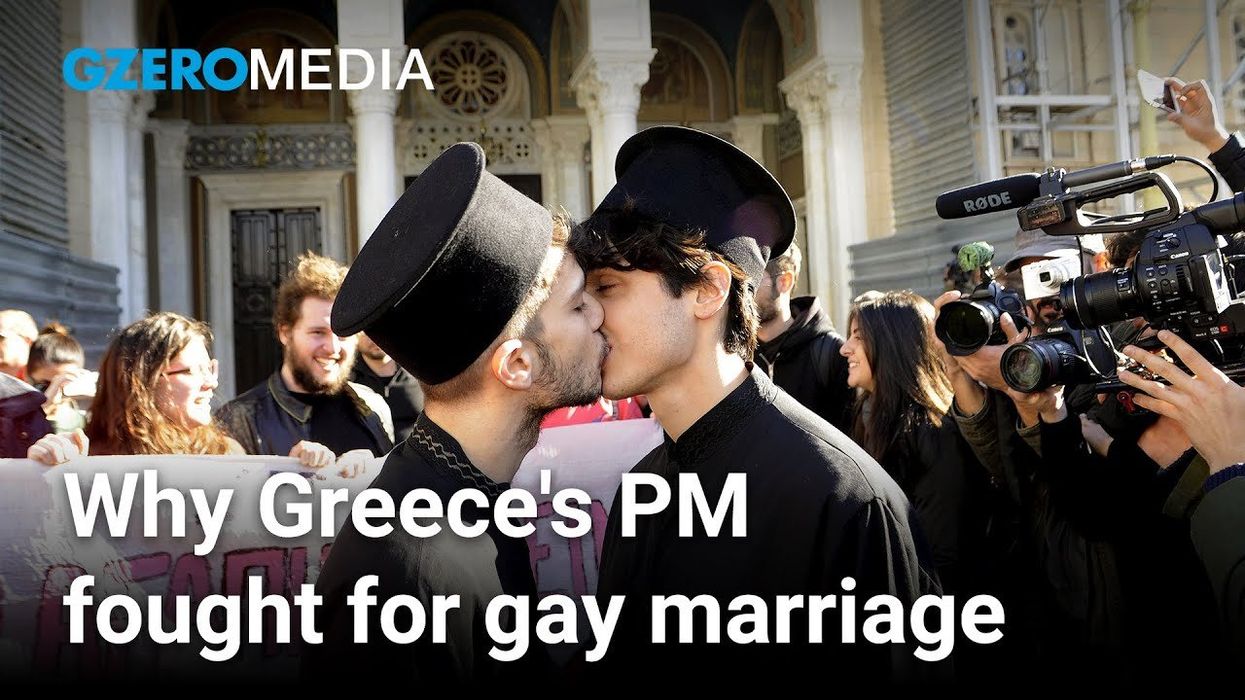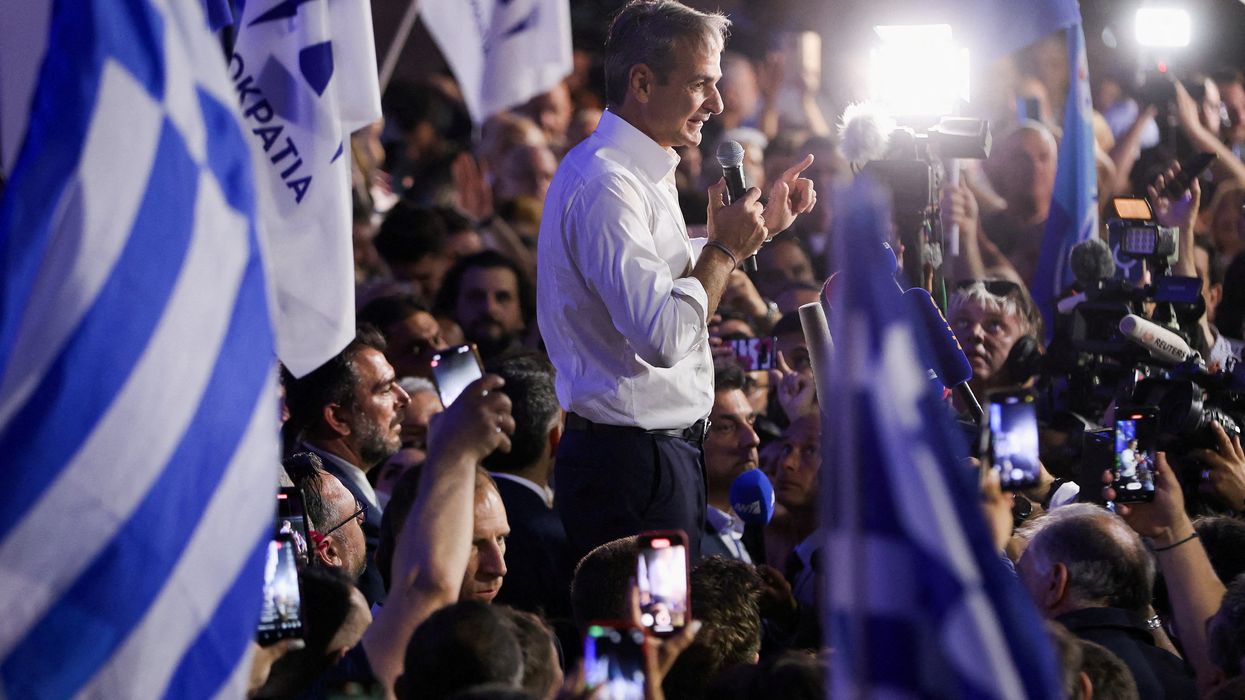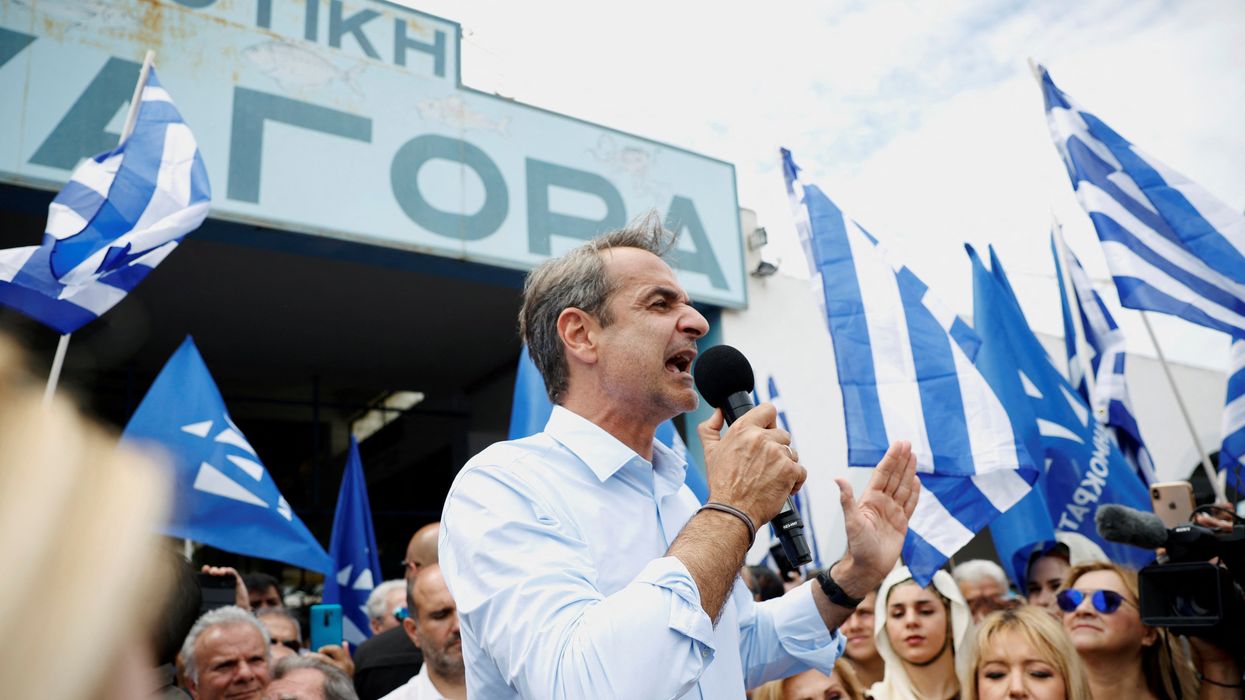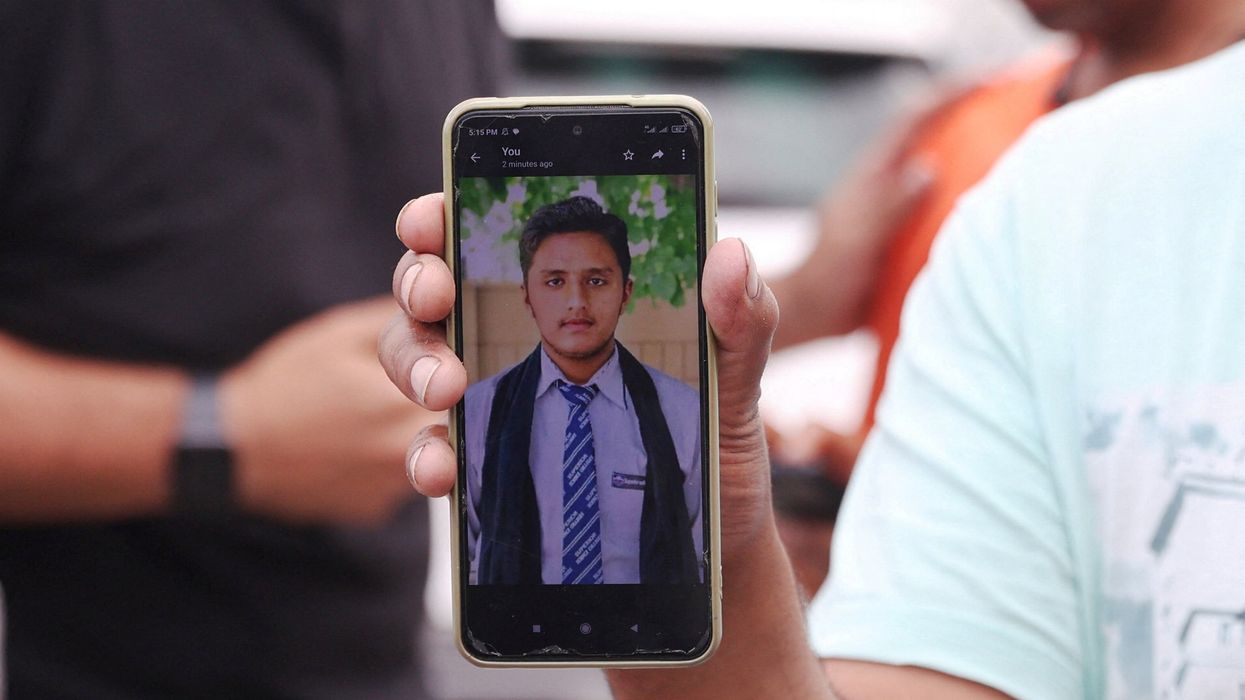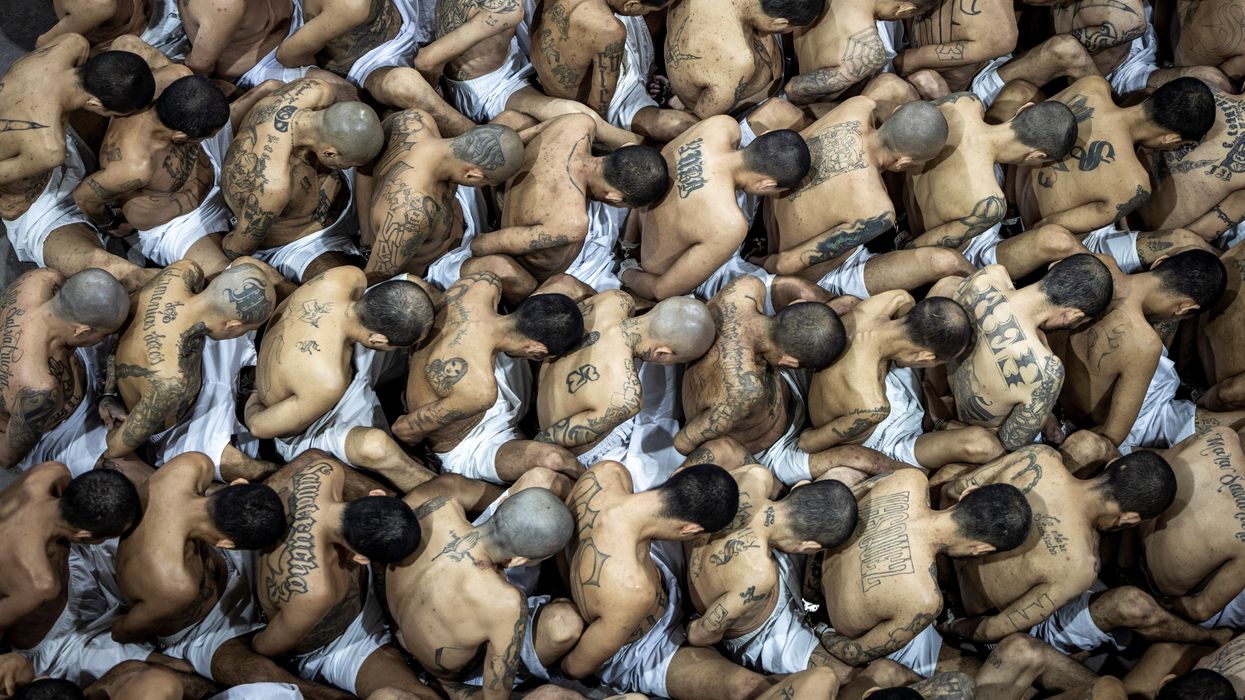Quick Take
Putin using Moscow attack as excuse to intensify war on Ukraine
Ian Bremmer's Quick Take: Putin did not mention that ISIS has taken credit for this terrorist attack. Instead, he spoke implausibly about links to Ukraine that don't actually exist. Also, why would ISIS-K do this?
Mar 25, 2024
